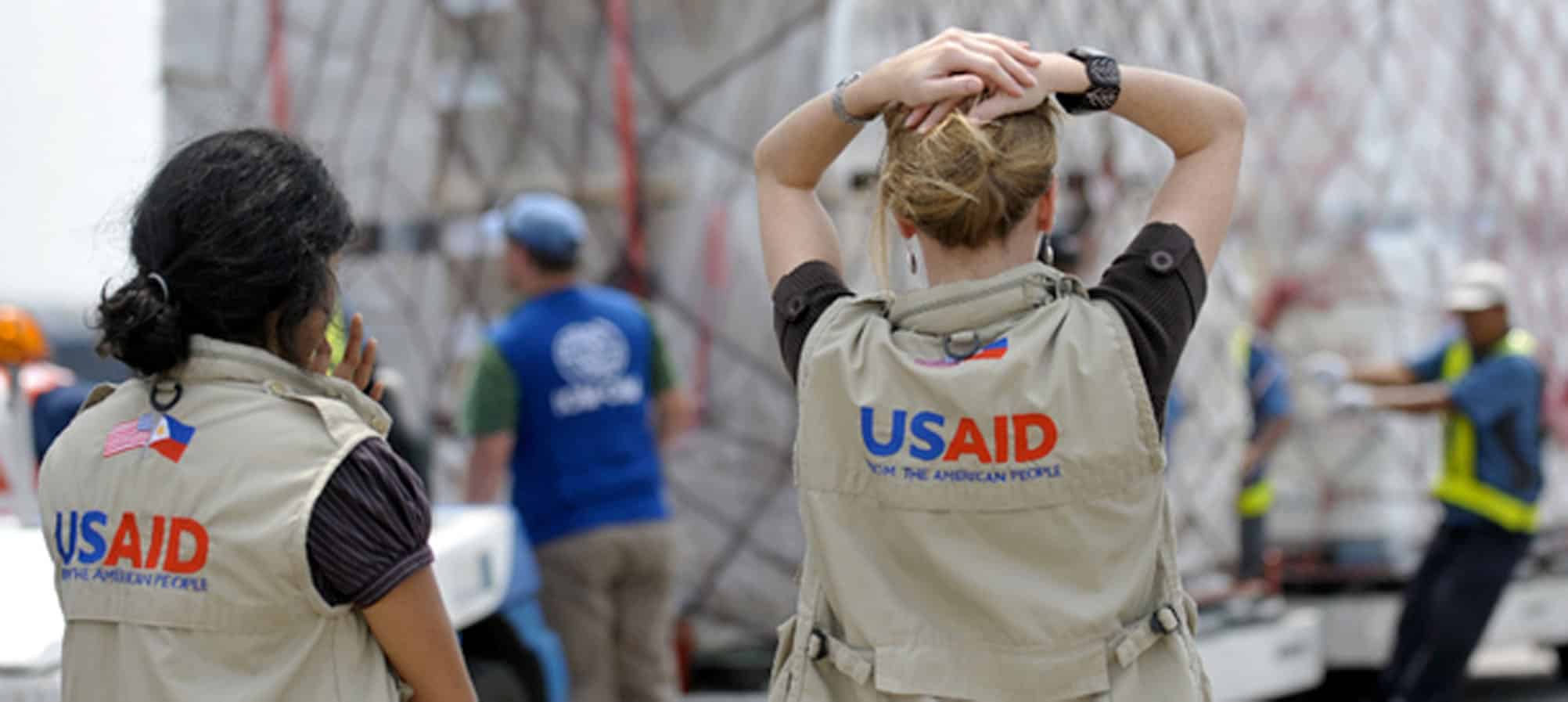Dismantling USAID: Threatening Humanity, Care, and Dignity
The abrupt dismantling of the US Agency for International Development’s operations, USAID, is catastrophically impacting the world’s vulnerable populations.
Executive orders, placing a 90-day pause on United States foreign development assistance, have come at a time when many in the world are suffering from the effects of war, extreme poverty, famine, and disease; countless scenarios where reduction of humanitarian assistance could result in many lives lost.
The Secretary of State Marco Rubio issued a stop-work and stop-spending directive on foreign assistance by all US government departments and agencies, consequently dismantling global foreign aid.
“The sweeping scope… of these executive orders… threaten the rights of people across the United States and around the world, particularly already marginalized and vulnerable populations who are disproportionately people of color.” said Tirana Hassan, executive director at Human Rights Watch, HRW.
Aid disruption will severely affect people in Sudan, Yemen, the Democratic Republic of Congo, Syria, and the Occupied Palestinian Territory. Cutting these types of initiatives may…prolong a country’s path out of poverty, a report by Oxfam America points out.
“We have already witnessed the life-threatening, wide-ranging impacts of a temporary disruption to U.S. foreign assistance,” noted Oxfam America’s President and CEO Abby Maxman, who has been working in international development for 30 years.
“This action … [punishes] the people who are already suffering the most, undermining U.S. credibility and interests, and halting decades of progress toward a safer, more equal world,” Maxman said.
“US support to human rights defenders has …. exposed the worst violations in the world as they occur,” Sarah Yager, Washington director at, HRW said. “A gap in that support leaves many people… vulnerable to detention or worse under repressive regimes… [taking] advantage of this aid suspension to silence them.”
Paul Martin, inspector general for USAID, issued an advisory notice detailing the impact of dismantling the agency, and was thus fired, The Guardian reports.
The notice was to “identify risks and challenges to the safeguarding and distribution of USAID’s $8.2 billion in obligated but undisbursed humanitarian assistance funds…and subsequent personnel actions by USAID … [reducing] the operational capacity of its Bureau of Humanitarian Assistance, BHA.” Guidance on implementation … included a directive for staff to refrain from external communications outside of “communications necessary to implement the pause.”
Shipments have been delayed around the world… [putting] more than $489 million of food assistance at ports, in transit, and in warehouses at risk of spoilage…over 500,000 additional metric tons of food [is] currently at sea or ready to be shipped.
All Third-party monitoring, TPM, contracts, and activities, including in high-risk environments such as Ukraine, Afghanistan, Ethiopia, Haiti, Gaza, Iraq, Lebanon, Somalia, Syria, and Venezuela have been suspended, impacting another layer of oversight, the advisory notice documented.
The White House disclosed its reasoning behind the pause:
“The United States foreign aid industry and bureaucracy are not aligned with American interests and in many cases antithetical to American values. They serve to destabilize world peace by promoting ideas in foreign countries that are directly inverse to harmonious and stable relations internal to and among countries.”
Another White House statement accused some United Nations, UN, agencies of drifting from “the mission to prevent global conflict and promote international peace and security” and instead acting “contrary to the interests of the United States while attacking its allies and propagating anti-Semitism,” giving these as reasons for withdrawing from and ending funding to UN organizations.
The UN Population Fund, UNFPA, an organization that provides health care and protection from gender-based violence to girls and expecting mothers in war zones and countries ravaged by natural disasters, and US funding for the UN Relief and Works Agency, UNRWA, which provides aid and other vital services to Palestinian refugees, were previously defunded by the administration, HRW reported.
Among the programs that remain grounded; are emergency medical care for displaced Palestinians and Yemenis fleeing war, and monkeypox surveillance in Africa, according to ProPublica.
“We need to correct the impression that the waiver was self-executing by virtue of the announcement,” said Marcia Wong, the former deputy assistant administrator of USAID’s humanitarian assistance bureau.
Aid groups that had already received U.S. money were told they could not spend it or do any previously approved work.
“Infectious diseases do not know borders. I’ve been an infectious disease doctor for 30 years, and I’ve never seen anything that scares me as much as this, it’s terrifying,” Dr. Jennifer Furin, a Harvard Medical School physician who received a stop-work order for a program designing treatment plans for people with the most drug-resistant forms of tuberculosis told ProPublica.
In 2024, eight wealthy countries announced $17.2bn in cuts to Official Development Assistance, ODA, while three others hinted at reductions, all to take effect over the next five years.
These figures have yet to include cuts from the executive orders …to withdraw from the World Health Organization, WHO, and pause US spending on aid, according to The Guardian.
“Geopolitical tensions are also leading to conventional grant aid being redirected towards winning allies and destabilising foes, moving production and trade to allied countries for strategic advantage and soft-power influence.”
Recent cuts suggest it is foreign aid’s legitimacy as a global policy expenditure that is at breaking point, The Guardian stipulated.
Adeelah Ahmad

